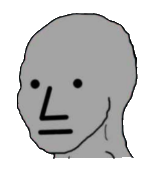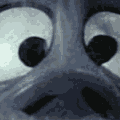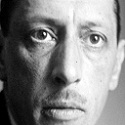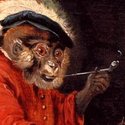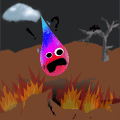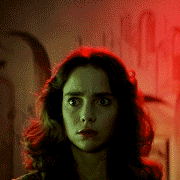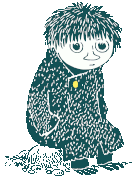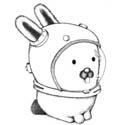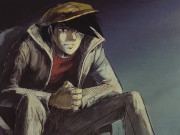|
This is a guide to authors who have won a Nobel Prize for Literature. The reason for such a list is that the world of "serious" literature can be quite daunting, even for people who read a lot. Every year dozens of works of literary fiction are published, many of them borrowing from literary traditions or techniques that are somewhat oblique. But the authors that have won the Nobel Prize between its institution in 1901 and now kind of provide a skeleton upon which most modern current in literature are based. As you become familiar with these authors, a lot of what is happening in literature becomes more clear. Only, of course, not always: not every author on this list is important today, and not every important 20th century author won a Nobel Prize. The criterion for admission, and the omissions, of the Nobel Literature Prize committee, are a source of frequent debate, and I invite people to comment on it as they wish. An important thing to remember is that unlike other literary prizes, such as the Pulitzer and Man Booker, the Nobel is given to authors, not to works. There is no such thing as a "Nobel Prize winning book"...although some books obviously did a lot to cement their author's reputations. I will be breaking this list down into four sections, based on how common and important they are. The sections will be authors that are encountered by high school, authors that are encountered by college, authors that are encountered by graduate students or specialists, and authors that are very obscure and hard to find. Some of my groupings here might be subject to debate! Authors that most students will encounter in high school English classes, or that can be found in a thrift store. William Golding (1983) John Steinbeck (1962) Ernest Hemingway (1954) Authors that most students will encounter in college, or that can be found in an average small book store. Seamus Heaney (1995) Toni Morrison (1993) Gabriel Garcia Marquez (1982) Saul Bellow (1976) Samuel Beckett (1969) Jean-Paul Sartre (1964) Boris Pasternak (1958) Albert Camus (1957) Winston Churchill (1953) Bertrand Russell (1950) William Faulkner (1949) T.S. Eliot (1948) Herman Hesse (1946) Pearl Buck (1938) Eugene O'Neill (1936) Sinclair Lewis (1930) Thomas Mann (1929) George Bernard Shaw (1925) William Butler Yeats (1923) Anatole France (1921) Rabindranath Tagore (1913) Rudyard Kipling (1907) Authors that will have been read by someone possessing a graduate level or specialist knowledge, and whose works can be found in a large bookstore Alice Munro (2013) Mo Yan (2012) Doris Lessing (2007) Harold Pinter (2005) John M. Coetzee (2003) Sir Vidiadhar Surajprasad Naipaul (2001) Gao Xinjiang (2000) Gunter Grass (1999) Jose Saramago (1998) Kenzaburo Oe (1994) Derek Walcott (1992) Nadine Gordimer (1991) I.B. Singer (1978) Heinrich Boll (1972) Pablo Neruda (1971) Aleksandr Isayevich Solzhenitsyn (1970) Mikhail Aleksandrovich Sholokhov (1965) Halldór Kiljan Laxness (1955) Andre Gide (1947) Henri Bergson (1927) Authors whose works are obscure, out of print, or that I don't personally know enough about to classify. Tomas Tranströmer (2011) Mario Vargas Llosa (2010) Herta Müller (2009) Jean-Marie Gustave Le Clézio (2008) Orhan Pamuk (2006) Elfriede Jelinek (2004) Imre Kertész (2002) Dario Fo(1997) Wislawa Szymborska (1996) Octavio Paz (1990) Camilo José Cela (1989) Naguib Mahfouz (1988) Joseph Brodsky (1987) Wole Soyinka (1986) Claude Simon (1985) Jaroslav Seifert (1984) Elias Canetti (1981) Czeslaw Milosz (1980) Odysseus Elytis (1979) Vicente Aleixandre (1977) Eugenio Montale (1975) Eyvind Johnson (1974) Harry Martinson (1974) (two prizes awarded this year) Patrick White (1973) Yasunari Kawabata (1968) Miguel Angel Asturias (1967) Shmuel Yosef Agnon (1966) Nelly Sachs (1966) (two prizes awarded this year) Giorgos Seferis (1963) Ivo Andric (1961) Saint-John Perse (1960) Salvatore Quasimodo (1959) Juan Ramón Jiménez (1956) François Mauriac (1952) Pär Fabian Lagerkvist (1951) Gabriela Mistral (1945) Johannes Vilhelm Jensen (1944) Frans Eemil Sillanpää (1939) Roger Martin du Gard (1937) Luigi Pirandello (1934) Ivan Alekseyevich Bunin (1933) John Galsworthy (1932) Erik Axel Karlfeldt (1931) Sigrid Undset (1928) Grazia Deledda (1926) Wladyslaw Stanislaw Reymont (1924) Jacinto Benavente (1922) Knut Pedersen Hamsun (1920) Carl Friedrich Georg Spitteler (1919) Karl Adolph Gjellerup (1917) Henrik Pontoppidan (1919) (shared prize) Carl Gustaf Verner von Heidenstam (1916) Romain Rolland (1915) Gerhart Johann Robert Hauptmann (1912) Count Maurice (Mooris) Polidore Marie Bernhard Maeterlinck (1911) Paul Johann Ludwig Heyse (1910) Selma Ottilia Lovisa Lagerlöf (1909) Rudolf Christoph Eucken (1908) Giosuč Carducci (1906) Henryk Sienkiewicz (1905) Frédéric Mistral (1904) José Echegaray y Eizaguirre (1904) (shared prize) Bjřrnstjerne Martinus Bjřrnson (1903) Christian Matthias Theodor Mommsen (1902) Sully Prudhomme (1901) Looking at those lists, the reader might notice something: a lot of the most popular and well known authors on the list are concentrated around the middle of the 20th century. There is a lot of politics and regionalism associated with the Nobel Prize. During its early years, it seemed to go disproportionately to Nordic writers, which makes sense given that the people giving the prize are Swedish. And during the past twenty or thirty years, the Nobel Literature Prize seems to be given to authors with certain political or social views, and also seemingly to redress the overwhelmingly European selection of the prize's early years. The prize has also, in recent years, been given to more experimental writers, and also to writers in formats that are not as popular to read (such as poetry). Not that I am claiming that the authors awarded the prize don't deserve it, or that the prize is given out for "political correctness" or only to "Ivory Tower types"  It is just that in the middle of the twentieth century, there was a bit more accord between what was considered to be the best writing and the most important writing. It is just that in the middle of the twentieth century, there was a bit more accord between what was considered to be the best writing and the most important writing. Of the authors on this list, I have read 27, which is probably a pretty high number. And even with that much exposure, I don't think I have ever seen a book by half of the authors on this list. This could be a regional thing, since I am in the United States. Some of these writers could be household names in Europe. I would like to hear what other people have to say, especially about the more obscure names on this list. Are these authors forgotten classics, or are the provincial writers whose time came and went? ETA: http://www.nobelprize.org/nobel_prizes/literature/laureates/ is the official page of the Nobel Literature Prize, with links to materials about the author, and explanations of their selection. glowing-fish fucked around with this message at 04:09 on Mar 29, 2014 |
|
|
|

|
| # ? Apr 26, 2024 21:52 |
|
Naguib Mahfouz is an absolutely amazing author, though I've only read two of his books because after each one I get depressed and cry for about a week, then I literally need a year or two off before I'm ready to face another one. I should be through the Cairo trilogy by the end of this decade. I'm not even really joking... The Beginning and the End completely knocked me off my feet and just about killed me. I gave the book away so I wouldn't be tempted to reread it. I've never had such a powerful reaction to a book either before or since. On the lighter side, Sinclair Lewis has always been one of my faves. His earlier stuff is close to a hundred years old now and it's amazing how relevant his satire still is... and still funny.
|
|
|
|
Florida Betty posted:Naguib Mahfouz is an absolutely amazing author, though I've only read two of his books because after each one I get depressed and cry for about a week, then I literally need a year or two off before I'm ready to face another one. I should be through the Cairo trilogy by the end of this decade. How did you discover them? Are they a writer that is of special interest in some field you are interested in, or are commonly known in a country you have lived in? Or did you just find them by chance?
|
|
|
|
glowing-fish posted:How did you discover them? Are they a writer that is of special interest in some field you are interested in, or are commonly known in a country you have lived in? Or did you just find them by chance? Naguib Mahfouz is one of the most famous Egyptian writers. I read excerpts from him in an Arabic class I took, but my Arabic isn't nearly at a good enough level to read an entire novel (of his, at least) so I read the translation. I don't know how I found Sinclair Lewis. I think I read Kingsblood Royal first, which is not one of his more famous novels, though I really liked it. From there I read a lot of others: Main Street, Babbitt, It Can't Happen Here, Arrowsmith, Dodsworth, Elmer Gantry.
|
|
|
|
I strongly urge people to give Mo Yan a read. Life and Death Are Wearing Me Out is probably his most well known of his works and it is a pretty great book to read. Basically going through cycles of reincarnation the main character experiences different cultural and political changes that happens in China and is pretty funny.
|
|
|
|
Florida Betty posted:Naguib Mahfouz is one of the most famous Egyptian writers. I read excerpts from him in an Arabic class I took, but my Arabic isn't nearly at a good enough level to read an entire novel (of his, at least) so I read the translation. And thus my ignorance: I know very little of the writing of the Arabic world. I did study Chinese, which is why I am familiar with Mo Yan. That and I got one of his books at the Dollar Tree. As for Sinclair Lewis, I think I read two of his books as a teenager, and I probably paid one dollar for them at a Thrift Store. I don't remember much about them. Sinclair Lewis was very popular during his time, probably one of the most popular authors (other than Hemingway and Faulkner) to get the prize.
|
|
|
|
Florida Betty posted:Naguib Mahfouz is one of the most famous Egyptian writers. I read excerpts from him in an Arabic class I took, but my Arabic isn't nearly at a good enough level to read an entire novel (of his, at least) so I read the translation. My exposure to Egyptian literature only extends to Yacoubian Building, and I'm very interested in reading more. The Amazon description says that the translation is lackluster - what issues does it have?
|
|
|
|
Red Crown posted:My exposure to Egyptian literature only extends to Yacoubian Building, and I'm very interested in reading more. The Amazon description says that the translation is lackluster - what issues does it have? I actually read the French translation of The Beginning and the End, but I read the English version of Palace Walk and I thought it was pretty good. I loved Yacoubian Building, by the way. I've been meaning to read something else by Alaa al Aswany, if anything else of his is available in English.
|
|
|
|
Arbitrarily tying laureates to levels of education is only slightly less bizarre than suggesting Solzhenitsyn is more obscure than Anatole France, but less than Coetzee. Remind me again how this is any more helpful than just listing them chronologically?
|
|
|
|
Florida Betty posted:I actually read the French translation of The Beginning and the End, but I read the English version of Palace Walk and I thought it was pretty good. I loved Yacoubian Building, by the way. I've been meaning to read something else by Alaa al Aswany, if anything else of his is available in English. There's his short story collection Friendly Fire that supposedly was banned in Egypt for a long time. Anyway, OP's classification is bizarre. I run a second-hand charity bookshop in the UK, and out of those 'obscure' authors we always get tons of Galsworthy, Hamsun, Patrick White, Mahfouz, Saramago, Coetzee, Pinter, Pamuk, Lessing, Muller and Llosa and quite regularly some of the other ones as well. In Central/Eastern Europe people like Deledda, Lagerlof, Andric, Brodsky, Bunin, Sienkewicz, Mauriac, etc. are very well known. There are a few names among the laureates that I wouldn't recognize, but then again I'm only a guy in mid 20s with an average interest in classics, so... I would like a 'World literature' (i.e., not English-written) thread, though, and this could be promising!
|
|
|
|
inktvis posted:Arbitrarily tying laureates to levels of education is only slightly less bizarre than suggesting Solzhenitsyn is more obscure than Anatole France, but less than Coetzee. It isn't levels of education as much as it is how familiar the general public is going to be with the writers, and also therefore how important these writers might be to understanding the "canon" of modern literature, as well as how accessible these writers might be to someone who is curious about learning more about literature. If someone wants to start reading these authors, it is going to be easier to find the works of Faulkner and Bellow, and easier to understand them, then to find the works of Karl Adolph Gjellerup. I could have been wrong on where specific authors were on the list, but I think the idea is sound. It also reflects differences in age and country. When I was a teenager in the 1990s, "The Gulag Archipelago" was a very easy to book find at second hand stores. I think this was because it was a popular book in the United States in the anti-communist 80's. But he might be much less well known outside of the US (and Russia, of course.)
|
|
|
|
glowing-fish posted:It also reflects differences in age and country. When I was a teenager in the 1990s, "The Gulag Archipelago" was a very easy to book find at second hand stores. I think this was because it was a popular book in the United States in the anti-communist 80's. But he might be much less well known outside of the US (and Russia, of course.) Maybe it's just anecdotal, but I see the first volume - the old, grey paperback version - of Gulag Archipelago all the time in used book stores but I've only come across a copy of the second volume once and I've never seen the third. I imagine people picked it up when Solzhenitsyn won the Nobel but couldn't make it through all three volumes. Or maybe their opinion changed when Solzhenitsyn started criticizing Western society, too. He was an interesting guy, David Remnick wrote a couple of good stories about him for the New Yorker a while back. Is anyone here familiar with Hamsun? He's a name that pops up occasionally in Amazon's recommendations for me, but I don't know anything about his books.
|
|
|
|
With Hamsun, anything written before 1900 is worth tracking down (Hunger, Pan, Mysteries, Victoria) - really fantastic books with a sort of late-Romantic fixation on impulse and irrational behaviour, like if Notes from the Underground was rewritten as a pitiless Nordic fairytale. Unfortunately he went crazy and started on a downward spiral which ended with him claiming Hitler was something like the father of mankind, driving Norwegians to send his books back to him en masse. That he's one of the greatest writers of the 19th century has always tended to get a little clouded by the fact his later life was a trainwreck of unbelievable proportions.
|
|
|
|
glowing-fish posted:I would like to hear what other people have to say, especially about the more obscure names on this list. I definitely wouldn't say that Saramago, Pinter or Pamuk are all that obscure. I have read those 3 from the obscure list and their work wasn't out of print or hard to find: Saramago's Blindness was adapted into film a few years ago and I remember Pamuk's Snow being prominently featured at Borders and other local bookstores shortly after he won (I haven't read that but I did read My Name is Red on Kindle a few years ago, which was fantastic btw). My wife was assigned Pinter in a college class and we both read through Betrayal in a Borders one afternoon (it is super short and we were poor). Honestly, I don't think any authors who have won in the last decade or so will be particularly hard to find. Now, it is harder to say why their cultural impact might not be as great as authors from the middle of last century. My best guess would be due to time and relevance. It is unlikely Steinbeck was taught in high school English when his works were first being published (I may be way off about that since I don't know enough about the education system, so correct me if I'm wrong), but his work has become classic and it is still relevant today for its overall themes as well as things it can teach us about a specific time in American history. It is also fairly tame compared to stuff by Oe or Grass. Nationalism is also going to play a role at least on stuff covered in high school, since it is easier to teach kids stuff when they have a reference point in their own culture and history. Stravinsky posted:I strongly urge people to give Mo Yan a read. Life and Death Are Wearing Me Out is probably his most well known of his works and it is a pretty great book to read. Basically going through cycles of reincarnation the main character experiences different cultural and political changes that happens in China and is pretty funny. Mo Yan is fantastic. I have read The Garlic Ballads and The Republic of Wine and enjoyed Wine a lot more; both were funny but Ballads was a tad more depressing. Based on your suggestion I'll probably read Life and Death.. next and I have Big Breasts & Wide Hips queued up for eventually. His stuff has been intermittently appearing on the Kindle Daily Deal which is how I picked up all 4, so I would encourage anyone interested to keep an eye out. Guy A. Person fucked around with this message at 21:24 on Feb 20, 2014 |
|
|
|
Guy A. Person posted:
As an example of how popular Steinbeck was, he released "The Grapes of Wrath" in 1939, and the next year, it was made into a movie directed by John Ford and starring Henry Fonda, and it won two Academy Awards. So if we look at the winners of the past ten or twenty years, we don't see any of their books being turned into movies directed by Robert DeNiro and starring Leonardo DiCaprio. Of course, even Steinbeck was an outlier, but he was a popular writer of his time, as were many of the other writers who gained the Nobel Prize in the middle of the 20th century.
|
|
|
|
glowing-fish posted:As an example of how popular Steinbeck was, he released "The Grapes of Wrath" in 1939, and the next year, it was made into a movie directed by John Ford and starring Henry Fonda, and it won two Academy Awards. So if we look at the winners of the past ten or twenty years, we don't see any of their books being turned into movies directed by Robert DeNiro and starring Leonardo DiCaprio. Fair point. Like I said Blindness (from a writer on the "obscure list") was turned into a film starring Julianne Moore but it didn't win any awards (and it was 13 years later). However, if Cormac McCarthy wins anytime in the next few years he will be a fairly good comparison with Steinbeck as far as film adaptations go. In which case I would go back to the nationalism argument, especially since the last American author to win (Toni Morrison) also had her most famous work adapted into film a year later.
|
|
|
Guy A. Person posted:In which case I would go back to the nationalism argument, especially since the last American author to win (Toni Morrison) also had her most famous work adapted into film a year later. There's a certain amount of circularity there though -- once an author has won the prize his works get more attention from movie scouts; similarly, authors whose books get made into movies have higher visibility and are going to get more attention from prize committees. I suspect the simpler answer is that a lot of winners aren't writing in English and so their works aren't as familiar to English-speaking audiences and movie concept scouts. I mean, there have been plans to make a movie out of Bridge on the Drina, but they're plans being made by a Serbian director, because when English-speaking audiences hear the name "Ivo Andric" they go "Who?" (edit: It's been over 15 years since I read Bridge on the Drina, it's a great book but, as one might imagine a book about Serbian history to be, rather depressing). Hieronymous Alloy fucked around with this message at 22:23 on Feb 18, 2014 |
|
|
|
|
Guy A. Person posted:Fair point. Like I said Blindness (from a writer on the "obscure list") was turned into a film starring Julianne Moore but it didn't win any awards (and it was 13 years later). On your recommendation, I moved Saramango up the list from "Obscure" to "Speciality" There is a pretty good chance I just don't know enough about recent literature. If a few people can vouch that an author is well known in their circles, I can move them up the list.
|
|
|
|
This thread reminded me that I need to seek out more Mario Vargas Llosa - I've only read The War of the End of the World, but it was fantastic.
|
|
|
|
Hieronymous Alloy posted:There's a certain amount of circularity there though -- once an author has won the prize his works get more attention from movie scouts; similarly, authors whose books get made into movies have higher visibility and are going to get more attention from prize committees. Oh certainly, which is why I mentioned McCarthy who hasn't won (yet), but it is a popular contemporary American author so he has gotten lots of high-profile film adaptations. I also apparently majorly hosed up the dates on Beloved, which wasn't adapted until well after the novel was made and Morrison had won the prize, so that's irrelevant to my argument. But yeah I totally agree with the language thing, it was part of my point. If we get another American author anytime soon s/he will probably be fairly familiar, and probably have a film adaptation or two (McCarthy has several; Pynchon has Inherent Vice filming; Roth has a few from years ago; who else is even a potential future candidate?) --- Also, while I am on the subject of the obscure authors, I would like to recommend Orhan Pamuk to everyone, specifically My Name is Red. It is about a murder among a group of miniaturists (people who created miniature paintings) in the Ottoman Empire, and obviously a lot of it hinges on the culture and customs of the time and how it brings about/hinders the investigation of the murder. You also have shifting narrators including some unexpected ones like "the color red", as well as (if I recall correctly) many of the drawings themselves. But it is funny and thought provoking and basically just a good read.
|
|
|
|
I find the "obscure" list a little strange since writers like Vargas Llosa, Pamuk, Lessing, and Coetzee always seem to be at the bookstore? I assume this is because they are all fairly recent winners. Anyway, Coetzee wrote Waiting for the Barbarians, which is one of my favorite books. I'd definitely recommend it. His style is really distinctive but hard to pin down or really describe. I recently read Pamuk's My Name is Red and wrote about it here. Parts of it are really good but the pacing is terrible and it gets incredibly repetitive at parts. I'd probably read more Pamuk though. I read Vargas Llosa's Death in the Andes, which wasn't bad but didn't blow me away. Then I read the beginning of The War at the End of the World at a bookstore a while back and was hooked and really need to pick it up. ultrachrist fucked around with this message at 01:13 on Feb 19, 2014 |
|
|
|
inktvis posted:With Hamsun, anything written before 1900 is worth tracking down (Hunger, Pan, Mysteries, Victoria) - really fantastic books with a sort of late-Romantic fixation on impulse and irrational behaviour, like if Notes from the Underground was rewritten as a pitiless Nordic fairytale. Awesome, thanks! I think Mysteries is the one that's popped up most recently, I'll be sure to check it out later this year. glowing-fish posted:Of course, even Steinbeck was an outlier, but he was a popular writer of his time, as were many of the other writers who gained the Nobel Prize in the middle of the 20th century. I think it's interesting how some writers were less popular than you'd assume. For example, when Malcolm Cowley put together The Portable Faulkner in 1946, most of those novels were out of print. It wasn't until after he won the Nobel in 1949 that Faulkner started winning Pulitzers, too (for A Fable and The Reivers).
|
|
|
|
Since he was recommended in this thread, and because he was available at my local, small library, I got a book by John Coetzee. "Summertime". Its a (faux)-memoir where a biographer interviews people who knew the late John Coetzee. Someone of an odd approach, I would say. I liked this book okay, and I won't say that Coetzee isn't talented or imaginative (although most of the thrust of his semi-faux-memoir is that he really isn't that visionary of a writer, etc.) Although this book is kind of evidence for what I see as the direction of the Nobel Prize: there used to be a fair amount of writers that got the prize that had a wide and broad influence. You can't understand any poetry in the past 100 years if you haven't read T.S. Eliot. But Coetzee, while good enough, doesn't seem to be a widely transformational writer.
|
|
|
|
barkingclam posted:I think it's interesting how some writers were less popular than you'd assume. For example, when Malcolm Cowley put together The Portable Faulkner in 1946, most of those novels were out of print. It wasn't until after he won the Nobel in 1949 that Faulkner started winning Pulitzers, too (for A Fable and The Reivers). Back in the US, at the height of his fame, he did a halftime radio interview at a football game where they introduced him as the winner of the Mobil Prize.
|
|
|
|
You don't know who Pinter is? Maybe his fame hasn't spread outside of Britain, but he was a playwright who earned the title of public figure. There's a passable production of the Birthday Party on Youtube, which is his most famous play. He's basically a less-weird Beckett, in that none of his plays have people buried in soil up to the neck. To reveal my own ignorance: who's Dorris Lessing? I've actually seen a lot of her books about in second-hand shops, but I passed them by.
|
|
|
|
Mr. Squishy posted:You don't know who Pinter is? Maybe his fame hasn't spread outside of Britain. Nah, it definitely has. Pinter is a seminal playwright of the 20th century and I've seen him taught in numerous undergrad courses.
|
|
|
|
Jeep posted:Nah, it definitely has. Pinter is a seminal playwright of the 20th century and I've seen him taught in numerous undergrad courses. I moved Pinter up a category. This thread has done a lot to expose my ignorance. I didn't really mean the lists to be a popularity contest, or a judgement. It was more along the lines of "you can probably find a copy of 'The Grapes of Wrath' more easily than you can find a copy of 'Independent People'"
|
|
|
|
Florida Betty posted:On the lighter side, Sinclair Lewis has always been one of my faves. His earlier stuff is close to a hundred years old now and it's amazing how relevant his satire still is... and still funny. It's amazing how well Arrowsmith still skewers academic medicine, public health, and primary care medicine. Really hard to believe it is so old.
|
|
|
Invicta{HOG}, M.D. posted:It's amazing how well Arrowsmith still skewers academic medicine, public health, and primary care medicine. Really hard to believe it is so old. Just grabbed this, thanks for the recommendation! Only medical-themed books I've read from that time period are the Thorndyke mysteries by R. Austin Freeman -- basically the first CSI style mystery novels; not exactly Nobel material.
|
|
|
|
|
Mr. Squishy posted:To reveal my own ignorance: who's Dorris Lessing? I've actually seen a lot of her books about in second-hand shops, but I passed them by. I have The Good Terrorist sitting on a stack of books to be read for over a year now so I'll just parrot what some one told me when I bought the book: she is a feminist commie who sucked a mystic's cock and occasionally wrote scifi. I don't think that was meant as an endorsement but I took it as one.
|
|
|
|
Went ahead and got myself Life and Death are Wearing Me Outthanks to this thread. I'm only 44 pages into the thing, but I can already tell that this is a book that'll ease its way into my list of favourites.
|
|
|
|
Stravinsky posted:I have The Good Terrorist sitting on a stack of books to be read for over a year now so I'll just parrot what some one told me when I bought the book: she is a feminist commie who sucked a mystic's cock and occasionally wrote scifi. I don't think that was meant as an endorsement but I took it as one. That's pretty close, yes. She also wrote a lot about race relations in South Africa, which is where she grew up. It means it's hard to find a representative book of her whole career. I've only read one of her South African books as a teenager. It was good but nothing terribly remarkable, I thought. I have the first book of her crazy sci-fi sequence and "The Golden Notebook" which is supposed to be her main achievement. Her 'mystic' was Idries Shah, who's a very interesting (and crazy) man in his own right. He called himself a Sufi and brought lots of their stories to the West, including Nasruddin tales, which everybody should read as they're still hilarious. (In Eastern Europe we got them from other sources, and a collection of them I had fell apart from all the reading and re-reading I did.) However, most Sufis would call him a fraud and a self-serving mystic instead. He was into Wicca, withcraft and Gurdjieff, all of which he said was tapping into Sufi tradition. He also produced a translation of Khayyam from a manuscript his family had been keeping for centuries that supposedly showed Khayyam was a Sufi as well. However, he was never able to show the manuscript to all the scholars and skeptics who asked for it. Basically ignore Idries Shah apart from his translation of traditional stories (which he probably 'improved' though) and as an influence to Lessing.
|
|
|
|
Burning Rain posted:I have the first book of her crazy sci-fi sequence
|
|
|
|
Oh, of course I read a lot of obituaries arguing whether it's fair to call her a feminist. She's also the author whose reaction to winning the Nobel was an exasperated "Oh Christ?" I guess I'm just bad with names! https://www.youtube.com/watch?v=vuBODHFBZ8k
|
|
|
|
inktvis posted:Have you got through it yet? I've been curious, but well-written sci-fi is a list that, in my experience at least, pretty much starts and ends with Lem. No, I haven't, so I can't say much unfortunately.
|
|
|
|
inktvis posted:Have you got through it yet? I've been curious, but well-written sci-fi is a list that, in my experience at least, pretty much starts and ends with Lem. No love for PKD or Vonnegut? But yeah, it would be interesting to read sci-fi from a genuine Nobel Prize winner. I also just finished Death with Interruptions by Saramago, since it popped up on the Kindle sale a month or two ago. It was interesting, although I felt like the style (effectively stream of consciousness with characters speaking in line with no quotation marks are anything, and limited punctuation) was an excuse to jump into different ideas and narrative strings easily without completely resolving others. Which sort've worked since it is basically just a rumination on the nature of death. But at the same time I was just put off by the last bit of narrative which I felt was a bit hokey death falls in love with a dude and then turns into a real girl to be with him.
|
|
|
|
Vargas Llosa is definitely worth investigating further. The War of the End of the World is his masterpiece, I feel, but The Feast of the Goat, Aunt Julia and the Scriptwriter, and Death in the Andes are all stellar. And I have lots and lots more of his stuff to read.
|
|
|
|
Yasunari Kawabata is amazing and if you haven't read him and like to read all the Nobel winners you should. Beauty and Sadness is one of my favourite books of all time and is startlingly beautiful and bleak. Elias Canetti's Auto da fe is also very good.
|
|
|
|
I've read translations of a Jaroslav Seifert's poetry. It's alright. Maybe I got a bad translation, but I dunno, it didn't blow me away.quote:DANCE OF THE GIRLS’ CHEMISES Maybe that reads better in Czech but eh. Not bad, but not something that's going to stick with me.
|
|
|
|

|
| # ? Apr 26, 2024 21:52 |
|
If I want to get into Günter Grass, which would be the first books of his that I want to read?
|
|
|


